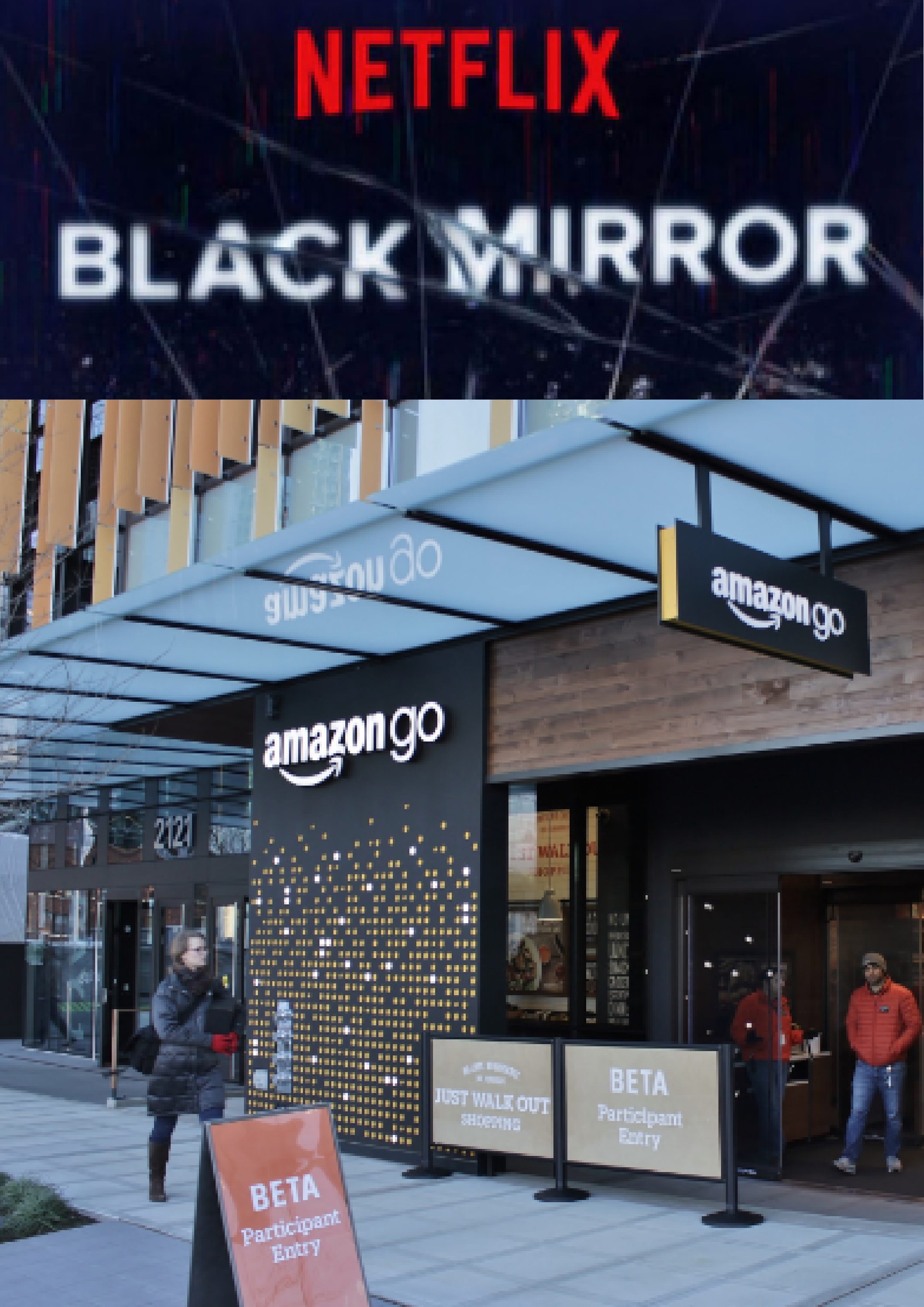In the past five years, technological advancements have been causing deep ripples in today’s ocean tide of technological advancements. In late 2014 L’Oréal created MakeupGenius, the first digital application that allows you to try on L’Oréal products, sans makeup or time to make a trip to your local drugstore. In 2015, fashion designer Rebecca Minkoff debuted one of the first digital fitting rooms, giving customers the ability to try on clothes and accessories without the hassle of finding the right size, or exiting in and out of the changing booth. In a similarly monumental fashion, Amazon opened its first check-out-free store today in Seattle WA. Consumers and critics alike are already buzzing with questions about the system’s accuracy and future locations, among other concerns about the breakout technology.
#AmazonGo opens on Monday, January 22 in Seattle. Get the app to enter the store. See you soon! https://t.co/jt7quQ4rke pic.twitter.com/shIyrifZyk
— Amazon.com (@amazon) January 21, 2018
Sounds pretty good, considering the shop-and-go convenience store was beta tested since late 2016. But grocery-store worker’s unions have different concerns, stating that the high-tech concept may eventually outsource cashiers and other in-store personnel in the near future.
Company representatives denied claims that Amazon-Go will be setting a new standard for in-store shopping, however the sheer fact of store’s success has many people pondering more than basic troubleshooting questions.
So what if Amazon did make live-laborers obsolete? Its plausibility, may be reminiscent of an episode of Black Mirror, the Netflix hit-series depicting the pitfalls of a post-modern society highly reliant on technology. The Black Mirror parallel is problematic for a number of reasons, but for the sake of brevity, here’s one blaring reason. If you watch the show religiously, (which is on to its fourth season as of December 17th ) you would note that even seemingly useful and much-needed technology, manages to get exploited in some deep, dark, and twisted way. We all remember that episode where a revenge-seeking masochist reprograms bio-mechanical honey bees—designed to regulate the ecosystem—into deadly assassins in a plot to teach people the perils of cyber-bullying. Or the episode where an unnamed vigilante uses super advanced hacking technology to catch predators watching child pornography, just to have them commit crimes under the guise that these criminal acts will preserve their anonymity? Yeah. In true Black Mirror fashion, we discover how something that is in theory “good,” can have very damaging effects. The facilitation of murder and blackmail only being some of the consequences.
Now of course, this is not to say that Amazon-Go is going to incite crime and chaos, but what is certain, is that the retail giant may have given some merit to what economist have anticipated for the last two years. A massive foreclosure in the retail sector all together, causing a less cinematic, but equally as consequential effect in terms of the sheer impact of digital spending. In total, there has been nine retail bankruptcies in 2017, J.C. Penney, Radioshack, Macy’s, and Sears only being some of the “big guys” closing up shop. Further dissection shows that the abject extinction of large retail companies is caused by changing shopping habits, with mobile commerce growing from 2 percent to 20 percent since 2010. As this trend continues, it is clear that Amazon-Go is just yet another very heavy stick in the fire that is digitized shopping— certainly not the actual blaze itself, so should we worry?
Yes and No. The slew of liquidations and bankruptcies have brought about unemployment, uninhabited building structures with high property taxes, and the rising cost in demolition projects. On the other hand, successful and motivated businesses have found ways to increase their digital footprint by becoming more in tune with the changing market, while finding solutions for the increasing demand to innovate. As of January 9th, Target reinstated their partnership with Techstars, a program designed to induct talented start-up tech agencies into Target’s business program. “Our participation in the Target + Techstars accelerator program has been more beneficial to our growth than even our most optimistic expectations,” said Atif Siddiqi, CEO, Branch manager of Techstars. In other words, investing in tech seems like the best way to avoid the backlash of the “ Black Mirror Effect,” and to counter claims that ventures like Amazon-Go is any way apocalyptic rather than transformative. So again, should we worry?
Not yet, considering the excitement surrounding not having to wait online to buy lunch, is simply that and no cause for panic. Perhaps a scenario in which credit cards and cash money becomes obsolete, forcing shoppers to implant micro-chips into their palms…now that might be reason to panic, and also a point of contention worth scripting for an episode of Black Mirror. As for now Amazon-Go is only available at its flagship location in Seattle. There is no word if other branches will be erected elsewhere, or if the technology is being duplicated by other retailers.










